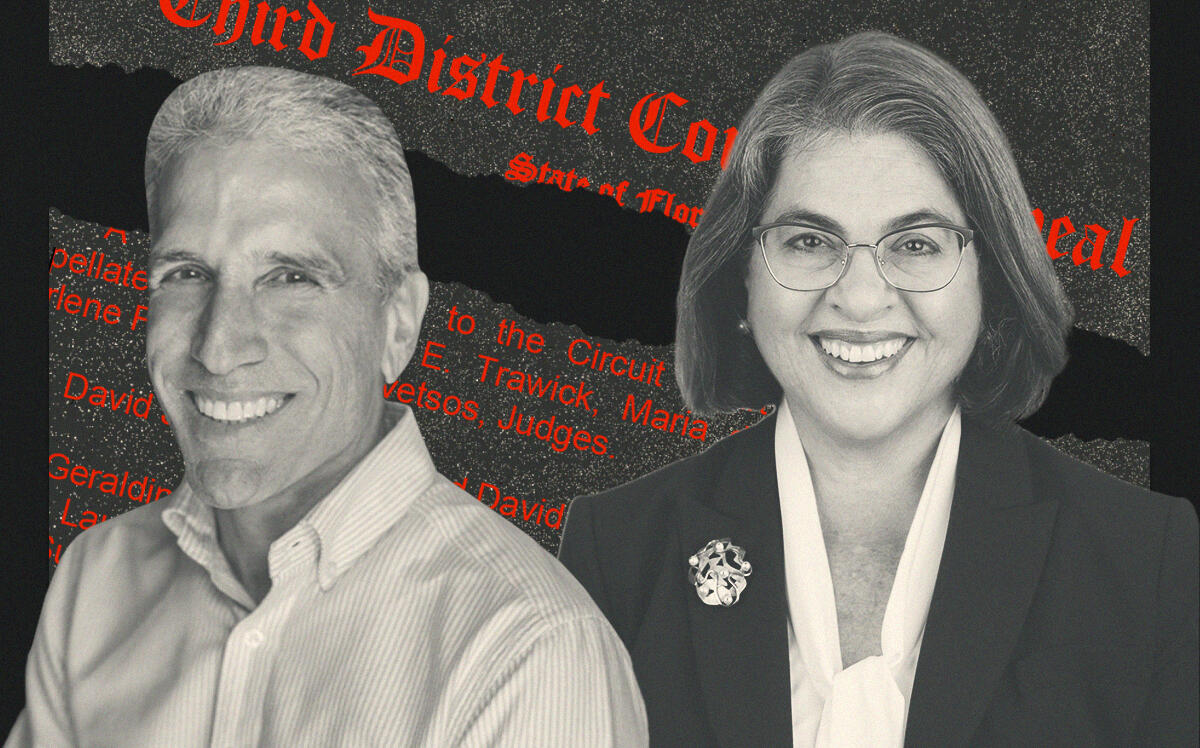Trending
Court ruling throws wrench in GL Homes’ Calusa project
Opponents of West Kendall development got good news when an appeals panel said that a county hearing approving the proposal wasn’t properly noticed

GL Homes lost ground in the battle over its planned development of a 550-home community on the shuttered Calusa golf course in West Kendall.
Since late last year, the Sunrise-based firm has been fighting a lawsuit filed by residents who oppose the project and sought to void a Miami-Dade County approval of the plan. This summer, the developer scored a court victory, but the tables turned on Wednesday.
The Third District Court of Appeal sided with nonprofit grassroots residents organization Save Calusa and its leader, Amanda Prieto, by determining that last year’s county commission meeting approving the project wasn’t properly noticed.
The decision marks the latest thorn in the battle to redevelop the long-closed Calusa golf course at 9400 South 130th Avenue in unincorporated Miami-Dade. The issue even predates GL’s plans.
In this case, Save Calusa and Prieto sued Miami-Dade County in December arguing that the commission’s Nov. 17, 2021, vote to rezone the 169-acre property, allowing the development of 550 homes, was invalid. GL Homes wasn’t sued, but voluntarily joined the case to fight on the county’s side.
The county didn’t properly notify residents of the hearing date, according to the complaint. The rezoning vote originally was scheduled and properly noticed for Oct. 20, 2021, but then commissioners at a meeting on the previous day decided to push back the zoning hearing to Nov. 17, the complaint says.
The county argued it met all requirements to properly notice the new meeting date, even providing a courtesy e-notice and mailed notices to residents, and said a new newspaper notice wasn’t required.
“This argument misses the mark,” Judge Bronwyn Miller wrote in the Wednesday opinion. “The original hearing was not convened and recessed. Instead, it was canceled the day before it was scheduled to occur.”
This means that the date of the vote can’t be “deemed a mere continuation of a properly noticed hearing.”
“The court was like, ‘No, no, man. You’ve got to follow the law,” said David Winker, the attorney for Save Calusa and Prieto. “It’s not discretionary.”
But the decision doesn’t upend GL’s plans. It now has two options: to appeal the Third DCA’s opinion, or embark on a do-over of the site rezoning by seeking another hearing in front of the county.
GL still is reviewing its options, said EVP Dick Norwalk. Although the court’s decision isn’t good news for the developer, the opinion is based on a technicality in the process, and not on “the merits” of the approval itself, he said.
“So if we or the county don’t appeal, we look forward to going back before the commission and having our application reheard,” Norwalk said.
Miami-Dade’s next step is unclear, as county attorneys declined comment.
The appeals court’s decision reversed the lower court, which this summer had agreed with Miami-Dade that it had properly noticed the zoning hearing.
Some Calusa neighborhood residents like Prieto have been pushing against redevelopment of the golf course, citing fears of increased traffic, overcrowded local schools and a drop in their homes’ values. Many have said they bought their homes because of a promise that the golf course will remain undeveloped until 2067 under a land covenant. The covenant can only be lifted if more than 75 percent of homeowners directly surrounding the course, or “ringlot” owners, voted to do so.
This threshold was eventually met, and county commissioners lifted the covenant in 2020. Last year, GL bought the property for $32 million from Facundo Bacardi, a member of the rum empire family. Bacardi, who had been pushing to do away with the development restriction for almost two decades, is a partner in the project.
GL’s plan also has faced opposition on the environmental front. While Miami-Dade County Mayor Daniella Levine Cava resisted residents’ push for her to veto the project, she has imposed stricter environmental reviews. In a November letter to the county commission, Levine Cava said that county staff members documented the existence of tri-colored herons, a bird listed as threatened.
GL has vowed to tweak its project if necessary to accommodate the nesting areas.
“Once monitoring concludes, experts will use data gathered to help our team present a plan for [county] review and approval to accommodate any threatened bird species,” Norwalk wrote in an editorial published in the Miami Herald this year. A tri-colored heron nest was spotted on a roughly 0.2-acre area of the site, he said in his editorial.
The appeals court also on Wednesday reversed the lower court on another issue: whether Prieto showed she has standing to bring the suit, or showed she will be harmed beyond other county residents.
Because the county zoning hearing wasn’t properly noticed, Prieto indeed had standing, the appeals court opined.
“No matter how rich and powerful you are,” Winker said, celebrating the outcome, “courts will hold you accountable.”




